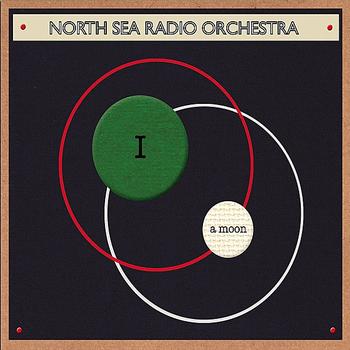Now and again, one finds themselves at a gig where an ambitiously eclectic promoter has attempted to juxtapose the laissez-faire hopefulness of underachieving indie bands with the brow-furrowing diligence of electro-acoustic musicians or free improvisers. The differences between these two species are most visible during set-up. While the post-Razorlight headliners’ drummer is draining his third Hoegaarden at the bar, and the tweepop eight-piece’s bassist has made a last-minute dash to borrow a lead, the improvisers and sonic manipulators will be meticulously placing contact mics and scrolling through MacBook libraries of environmental recordings to find a just-so rustling noise or whatever’s definitive in birdsong. While their end product invariably falls short of Stockhausen or AMM, the discipline and focus of the experimental set is refreshing in a musical context where the overstatement of incompetence and ironic disavowal have been rote-learned as defences against failure.
London’s wistfully-named North Sea Radio Orchestra tend to exude this kind of seriousness. Combining polemical traditionalism – their previous album The Birds contained settings of Tennyson, Chaucer, and Blake – with approachably minimalist evocations of Steve Reich and Terry Riley, NRSO’s CV would make them frontrunners were Radio 3’s Late Junction to employ a house band. While the last half-decade has seen a revival of a ‘folk’ whose church is broad enough to accommodate everything from demonstratively fragile – or inanely introspective – singer-songwriters to tenth-generation psychedelicists, Craig Fortnam’s fluctuating ensemble have stood apart in their resistance to the sloppiness which has marred much of the new pastoralism. Their bearing has recalled the sternness of contemporary art musicians, while their poetic appropriations have consistently situated their work within a determinedly high-cultural context.
I a Moon‘s accompanying press release announces a ‘darker’ direction, and Fortnam – for now at least – has given up raiding the Eng-Lit canon in favour of penning lyrics for his wife Sharron’s distinctive voice. Both developments may well raise eyebrows amongst those appreciative of what NRSO have achieved to date. Proclamations of detours into the gloom frequently suggest that a band are about to reach for a pre-manufactured template of the morose which doesn’t have the emotive whack it’s intended to, while the departure from efforts to redefine understandings of familiar literary texts appears to represent a disposal of one of the most engaging items on Fortnam’s aesthetic agenda. It’s hard not to wonder if, rattled by critical misrecognitions of their solemnity as smugness, NRSO have lost confidence in their original brief.
Bands who feel pressed by the media to redefine themselves often return with albums which smack of dilettantism and career indiscriminately from style to style. There are moments on I a Moon where a thread is dropped: while it might seem churlish to do a record down on the grounds of a single weak track, ‘Berliner Luft’, an imprudent dabble in unamplified krautrock, points to a lack of assuredness which hasn’t been there on NRSO’s previous efforts. Its annoyingly self-conscious title aside, the piece sounds less like a worthwhile development on Neu’s motorik than a discarded draft for a Stereolab instrumental. That it’s positioned midway through the album is particularly frustrating, as – along with ‘Morpheus Drone’, a soundscape which aims for, but fails to achieve, Popol Vuh’s stateliness – it drives a wedge between two clusters of what Fortnam and his group do best.
Towards the beginning and end of I a Moon, NRSO play to their strengths, switching deftly between anachronistically lush harmonies and twirling repetitions which – in pieces like ‘Ring Moonlets’ – resemble Riley’s mesmerisations. Here, subtly modernist synth lines insinuate themselves into songs which feel like apparitional visitors from some alternate timeline of English religious music and manipulate our susceptibility to the overtures of nostalgia. The undercutting of what can appear to be musical, and even political, conservatism via the reductions of minimalism produces, as it has throughout NRSO’s back-catalogue, an effect of warped time not unlike that achieved by Ghost Box’s hauntologists. When, on ‘The Earth Beneath Our Feet’, Sharron Fortnam sings ‘We’ll be sitting in a row/ looking over England/ watch the evening go’, something akin to a séance occurs: the vaguely patriotic sentiment of the lyrics appears sincere, but it’s as if the voice is being detected by instrumentation picking its way exploratively across historical bandwidths without preordained political conviction. The uncertainty of the music – its hesitant articulation and unresolved cadences – works as a deliberately unstable platform for the Edwardian tributes to Englishness which come about in the words.
At their best, NRSO’s counterposing of heartfelt elegies to a maternalised landscape with modernist indeterminacy resembles the artistic and literary neo-romanticism of a selection of mid-century figures ranging from the painters Paul Nash and John Piper to writers like Dylan Thomas and Henry Green. I a Moon generally manages to convey the dividedness that occurs when one both wishes to feel at home in a place and recognises that uprootedness is the defining characteristic of modern experience, a substantial achievement representative of an artistic self-belief carried over from earlier albums. But there are also hints that this poise is waning towards the less disciplined playfulness – the irksomely catholic taste – of nu-folk. Fortnam’s ensemble would do best to keep a close eye on their contact mics for the next couple of years if they’re to avoid the indie purgatory of bad-faith open-mindedness.


